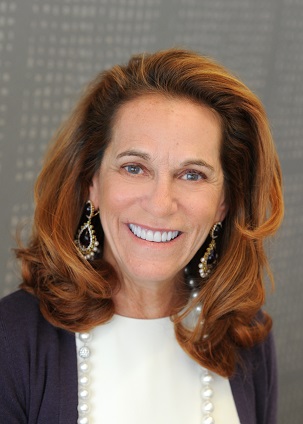Before COVID-19 drove us from our corporate workstations, the workday flow had a distinct rhythm. Our alarms would go off every morning, pushing us out of our beds and onto our commutes. We would arrive at the office as it opened and work a full day, taking an hour or so for lunch. When five o’clock rolled around, we made light conversation with our coworkers as we packed up to leave, cheerful with our accomplishment and eager to return home for some well-deserved relaxation and family time.
The workday is different in a post-pandemic working world. The once-structured flow that defined our days has become hazy, and the lines between personal and professional time blurred. When our alarms go off in the morning, we can travel from our beds to our home workstations in a matter of moments — so, we might as well start work early. Because lunch can be cooked at home and eaten at the table, there seems to be little point in actually taking a full hour break. Justifying an extra half hour of work at the end of the workday is similarly easy; after all, there’s no commute to worry about.
But these extra minutes stack up quickly. Since the onset of the COVID-19 pandemic, Americans’ workdays have reportedly increased by nearly 40 percent.
According to a recent report published by NordVPN Teams, employees in the United States have added an average of three hours to their daily work schedules. This is the largest leap worldwide, although workers in the UK, France, Canada, and Spain have reported still-significant two-hour increases.
This data seems insane. Workers are at home and commute-free; shouldn’t their work-life balance be, well, balanced?
Not necessarily. Without proper checks in place, it’s easy for remote workers to fall into a “might as well” mentality.
Well, I might as well get started early.
I finished eating; I might as well cut lunch short and get back to work.
I only have another hour or so — I can stay late to finish this project.
These additions only add a half-hour here and there to a worker’s day — but over time, they add up. This tendency towards extra work isn’t a COVID-unique phenomenon, either. In 2015, a Stanford research initiative on remote work found that Chinese call-center employees who worked remotely were 13 percent more productive than control group employees. They tended to take fewer breaks and make more calls per minute than their office-bound peers.
From a business perspective, this boost to productivity is fantastic. But taken in the context of our COVID-prompted pattern of overwork, isn’t it also problematic from a human resources standpoint?
Not exactly. Interestingly, Stanford researchers also found that remote workers tended to be happier and less likely to quit their jobs than their in-office peers. The complicated truth of the matter is that remote work can offer the best of both worlds; it can boost productivity and optimize employees’ work-life balance. Previous research has amply demonstrated that remote work can be particularly valuable for working parents.
One 2015 study found that six months following childbirth, women who worked remotely experienced a “statistically significant decrease in their levels of depression” compared to women who had returned to the office. Remote work arrangements give working parents the flexibility to balance their work responsibilities with their family obligations. By removing the need to commute and in-office distractions, remote workers should have a greater ability to work hard and, when that work concludes, clock out and enjoy their home life.
But if remote work offers such notable benefits in theory, why is it failing Americans in practice? The answer probably has something to do with our always-on cultural attitude towards work.
It’s no secret that Americans have a cultural tendency to glorify overwork. In 2018, analysts for Project: Time Off, a research initiative dedicated to exploring the economic and social benefits of taking time off, found that Americans gave up 212 million days off in 2017 — a sacrifice amounting to roughly $62.2 billion in “lost benefits.”
“The American dream—that hoary mythology that hard work always guarantees upward mobility—has for more than a century made the U.S. obsessed with material success and the exhaustive striving required to earn it,” The Atlantic’s Derek Thompson wrote last year on the matter.
Today, technology has made it ever-more easy for workers to stay logged into work even after they have — technically — clocked out. To borrow a quote from Glassdoor community expert Scott Dobroski, “You’re one finger swipe away from your email inbox while you’re sitting on the beach in Hawaii.”
Moreover, there is a pervasive — if subtle — assumption that because workers can work outside of work hours and have nothing “better” to do, they should. Consider a line recently published in a Washington Post article on American overwork as an example: “Remote workers also often work longer hours – not surprising since the average American spends 54 minutes a day commuting.”
The core assumption here — which is included in the article as an aside — is that workers will naturally dedicate the time they would have typically spent commuting to more work, rather than sleeping in or taking more time for themselves.
This work-first mentality is not unique to the United States, but it is notable when compared to other nations. In France, a worker’s refusal to log off at the end of the workday is referred to as “info-obesity” and is viewed as such a problem that the country outlawed sending professional emails outside of work hours.
Will America need similar restrictions as remote work continues to entrench itself as a norm? Perhaps. Unfortunately, it is all too easy for workers to fall into overwork patterns when they work from home. This, in turn, can cut into family time and erode the most upheld benefit of remote work: family time.
Adverse consequences have already resulted from this trend. According to a recent survey, a full 14 percent of polled women and 11 percent of men say that they are considering quitting their jobs because of a work-family conflict related to COVID. If we leave the situation to worsen, employers will ultimately see burnout, lost productivity, and increased turnover.
As we move forward into a post-COVID, remote-friendly work era, business leaders need to make an active effort to break the toxic culture of overwork that currently undermines the benefits that remote work should provide. Managers should emphasize the importance of regular breaks and discourage — or, at the very least, not actively encourage — working beyond the formal end of the workday. Workers should also strive to balance their work-home lives and be mindful of when they exceed their shifts.
The shift to remote work can offer a plethora of benefits to workers and businesses alike — but only if we stop glorifying overwork.


